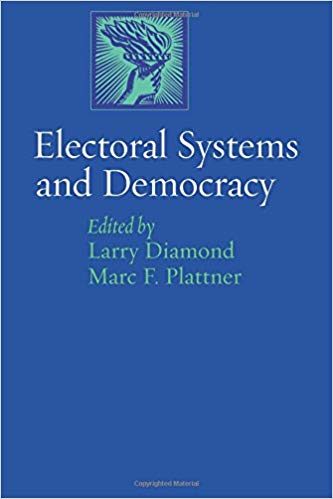
Electoral Systems and Democracy

This book compares the experiences of diverse countries, from Latin America to southern Africa, from Uruguay, Japan, and Taiwan to Israel, Afghanistan, and Iraq.
Where to Buy
“An accessible and comprehensive collection… usefully grounds the key theoretical arguments with empirical evidence.”—Toby James, Political Studies Review
“Very useful for pedagogical purposes… Recommended. General readers and undergraduates.”—Choice
This volume addresses electoral systems and democracy. As the number of democracies has increased around the world, a heated debate has emerged among experts about which system best promotes the consolidation of democracy. Is proportional representation, a majoritarian system, a mixture of the two, or some other system the best for new democracies? This book compares the experiences of diverse countries, from Latin America to southern Africa, from Uruguay, Japan, and Taiwan to Israel, Afghanistan, and Iraq.
Contributors
Joel D. Barkan, Jeffrey Cason, Adeed Dawisha, Larry Diamond, Andrew Ellis, Ken Gladdish, Donald Horowitz, Guy Lardeyret, Arend Lijphart, Jih-wen Lin, Emanuele Ottolenghi, Marc F. Plattner, Quentin L. Quade, Benjamin Reilly, Andrew Reynolds, David Samuels, Richard Snyder, Richard Soudriette, R. Kent Weaver
Editors
Larry Diamond is a senior fellow at the Hoover Institute of War, Revolution, and Peace at Stanford University.
Marc F. Plattner is vice president for research and studies at the National Endowment for Democracy. They serve as codirectors of the International Forum for Democratic Studies and coeditors of the Journal of Democracy, as well as of other collections of essays available from Johns Hopkins, including The Global Divergence of Democracies, Islam and Democracy in the Middle East, and Democracy after Communism.
